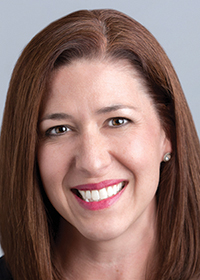Advice for starting your dream small business
by June 10, 2021 11:13 am 742 views

As the pandemic recedes and business optimism rises, opportunities to start a small business may abound. Additionally, the disruptions of the previous year have prompted many people to dust off their dreams of starting their own business.
Should this apply to you, I’d like to share some thoughts that could prove helpful early in the process of pursuing this endeavor.
There are some basics for all first-time small-business owners. First and foremost, you need to start with an idea you’re passionate about. Should you start your business, this adventure will be pretty consuming, so you want to be fired up about it. Does your heart rate speed up as you share your vision with others? Do you find yourself visualizing the success of your business? These are good signs that you may have a passion for persevering beyond hurdles and setbacks.
Before you go “all in,” you’ll want to have the courage to share your idea with others in various capacities and be open-minded to their insights. That may be with your target market, other business owners or professional advisers. And while we all love mom’s unwavering support, I encourage you to seek out opposing opinions to broaden your perspective.
The insights you receive can set your business dreams on varying trajectories and timelines. Listen. Be humble. Be confident.
Some would-be first-time entrepreneurs looking to start a small business believe they need an incredibly prepared plan in place before talking with others, such as a local business banking adviser, for guidance. As it pertains to seeking help with the financial aspects of the business, many people have the perceived need for everything to be “buttoned up.” Some have been thinking about their business idea for a long time or investing tremendous amounts of their savings before these informative discussions.
This perception that you need everything figured out in entirety and to do everything yourself from day one isn’t accurate, and knowing this can save you time, money and a lot of stress.

Some people feel intimidated by the idea of talking to a professional early on and are afraid of the feedback they may receive. But please know the adage is true: The wise seek wisdom. That does not make you less confident or less competent but instead sets you up for success and helps remove blind spots.
Don’t be afraid to talk to a business banking specialist at the beginning of your planning process. They’re here to help and want to see you succeed! They can help uncover needs and provide resources you may be unaware of. A specialist can often review your business plan and ideas early on and help identify gaps and opportunities.
Don’t go it alone. Find a group of entrepreneurs you can meet with regularly to share advice, ideas and challenges. As you begin your new business, you’ll want to remember to maintain balance and have boundaries; peers can help you keep things in perspective with their experiences.
As strange as it might seem to think about at the onset, have an exit strategy. Should someone offer to buy your business, or should a partner want to buy you out (or vice versa), be prepared to view things objectively and know how to handle these situations.
Finally, along with your bank, utilize helpful (and often free!) resources from the U.S. Small Business Administration or local resources, like the Arkansas Small Business and Technology Center at the University of Arkansas.
Entrepreneurs need encouragement and a safe, objective sounding board to get started. Surround yourself with such resources and guidance, and you’ll be well on your way to making your dreams of building your own business become a reality.
Amy Morbeck is the director of small business strategy and innovation for Arvest Bank’s new Small Business Division. The opinions expressed are those of the author.
